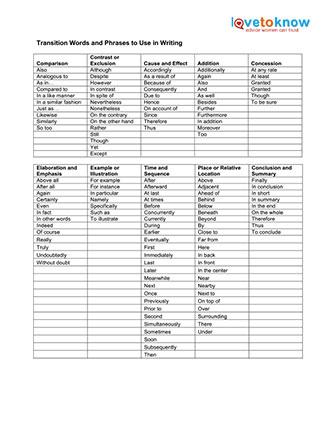
There's probably nothing quite as exhilarating as landing your first grown-up job. But just like you probably wouldn't style your hair the same way you did 20 years ago, you'll probably be in a different career position by then too.
The answer to how long you should stay at a job isn't the same for every person, so one of the best ways to know the time's right is learning what the warning signs are that it might be time to leave.
How Long Should You Stay at a Job?
If you've asked that question to friends, mentors, or family members, we're sure you've run into the classic response that "it depends." They might tell you to leave a job "when the time's right." While we love the advice to listen to your instincts, it's not very useful if you've never left a job before and don't know what that 'right' time feels like.
To answer that question, you can look at some stats and consider some of the signs that indicate you might have stayed at a job long enough.
What the Stats Say
According to the U.S. Bureau of Labor Statistics, the median of workers who had been with their current employers was about 4.1 years. Given that this is only the median, there's definitely outliers on both ends, so those friends of yours that seem to quit their job every six months might not be so off-trend. If there is lots of growth and new opportunities, or you just love the job or company, staying a position longer than that average can be perfectly reasonable too.
Meanwhile, there's the college adage to consider that says you should stay at your first job for at least one year before leaving, which still has a lot of cultural credibility.
What Does It All Mean for You?
Realistically, you can't base leaving or staying in a position off of a number. Everyone's jobs and lifestyles are different, so something so rigid as a numerical answer isn't going to work. Instead, you need to use other criteria to see if it's time for a change.
6 Signs That Might Mean It's Time to Move On to a New Job
Just like guests, you don't want to overstay your welcome at a job -- especially your first one. Knowing when to leave your first job can be especially nerve-wracking. But, when these signs start popping up, you should listen to them and think about what's best for you.

You're Thinking About Leaving
If you're even thinking about leaving, then it could be a sign that your position isn't fitting like a glove anymore. Now, this could be due to a multitude of things like burnout, difficult bosses, or a poor work/life balance. But if your subconscious has been chewing on the idea long enough for it to start making its way into your wandering thoughts, you should take heed and consider your options.
You Feel Restless or Unfulfilled With Your Work
You know that unsettled feeling that pops up right before the holidays, when it's been a long while since your last vacation and you're just ready to take a break? If you're feeling like that every week, all week long, you might be getting restless and needing something new. Just like animals in the zoo, humans need some stimulation in their enclosures too.
You Can't Seem to Get Motivated
A lack of motivation can stem from many things, but staying at a job for too long can be one of them. If you can't get motivated to do the work, and you don't care if you don't get it done, then the work you're doing might not be sparking that motivation drive inside you.
It's particularly significant if you notice a decline in motivation or a few months or few years without any major life changes or mental health concerns, since you can't chalk that situation up to anything else.
Paying Your Bills Is Difficult
Sometimes, your job doesn't grow with you. You start at one wage and you might not get any significant raises or increases to account for your changing lifestyle or inflation. If you can't pay your bills anymore on your full-time job alone, then it's a good reason to consider leaving your job.
It doesn't matter how much you love a job; if they're not adequately compensating you, it's probably time to go.
You've Exhausted All the Opportunities to Learn New Skills
Whenever you start a new job, there's a bounty of opportunities just waiting for the taking. You can learn from coworkers, programs supported by your company, as well as on the job. But, at some point, you learn everything the company has to offer.
If there are no new opportunities coming up for you to have new experiences and gain new skills, then it might to time to challenge yourself in a new position.
You're Taking on More Than Your Role Requires
At the end of the day, if your bosses feel comfortable and confident that you can handle a workload that exceeds what's in your job description, then they know you've gotten too qualified for your position. Normally, this is where someone would boost you up with a promotion. But if it's been a while and there are no promotion bells ringing, you might want to consider a new position in the next level of your career path.
Ready to Move On? Heed This One Piece of Advice Before Leaving a Job
If you're ready to move on to the next chapter in your working career, then we've got a major piece of advice -- don't leave your job until you've got another one lined up. Of course, there are exceptions to the rule, but if the reason you're leaving is because you've outgrown the position and the company, don't put financial and emotional strain on yourself by surprise quitting at your next shift.
Instead, actively apply and interview for jobs while still working your old one. Generally, you don't need to tell your old employer that you're looking for new positions. Just wait until you've signed the paperwork for a new job and put in that two week notice if possible.
If you can, you want to leave that first job -- or any job really -- on good terms. You never know when your paths might cross again in the future.
Do Yourself a Favor and Leave When It's Time
Jobs don't have to last a lifetime. There'll usually come a time when your job's metaphorical pants don't fit you anymore, and you need to search down a new pair to wear. Everyone's time to leave is different, but if you start finding these signs pop up in your life, then it's probably a good idea to freshen up your resume and start looking for something new.







